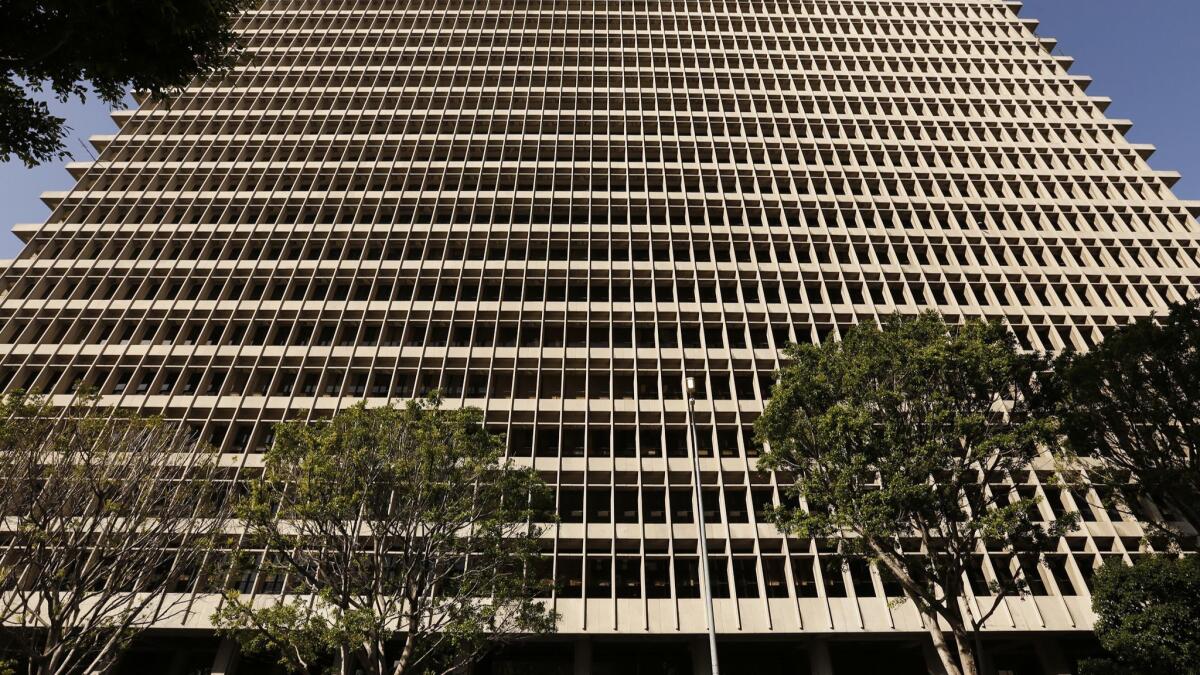Endorsement: The Times’ recommendations for Superior Court judge in Los Angeles County

Every two years, judicial elections make up the most confounding portion of the ballot. Voters are usually unfamiliar with the candidates, and are often unsure where to go for more information.
Even the selection process is arcane. The truth is, the governor fills the vast majority of Superior Court vacancies, but if a seat opens up within a particular statutory time frame and the governor doesn’t fill it, the job falls to the voters. Also, challengers can run against a sitting judge whose six-year term is up.
Knowing that voters have little information, the candidates make their best pitches through their three-word ballot designations. One candidate this year went the extra distance by changing his first name to “Judge,” so that it looks on the ballot as if he may already be serving. Nice try, but not a great move for someone who wants to be elected to a position in which honesty and integrity are paramount.
Los Angeles Times editorial board endorsements for the U.S. House, California ballot measures and more.
This year, The Times is making endorsements in the nine contested races for Superior Court judge. To reach our decisions, the editorial board interviewed each of the candidates and conducted additional research and reporting. We recommend as follows:
Superior Court Office No. 42: Robert “Bob” Villa. Villa is an experienced deputy district attorney with hundreds of trials under his belt. He knows his way around a courtroom and is ready to serve as a judge. He has the edge over Supervising Deputy Atty. Gen. Linda L. Sun, who is well regarded but lacks the same courtroom experience.
Superior Court Office No. 72: Steve Morgan. Morgan is a deputy district attorney but also brings valuable experience as a criminal defense lawyer who served in the military with the judge advocate general handling courts-martial on the defense side. He has also taught law. Because of his breadth of background, Morgan is the best of three candidates. Myanna Dellinger is a Danish-born law professor and is bright and capable, but has insufficient courtroom experience. Robert Jacobs is an attorney in private practice with a specialty in immigration-related matters.
Superior Court Office No. 76: Emily Cole. Currently assigned to the sex crimes unit of the L.A. County district attorney’s office, Cole has the experience, wisdom and integrity to serve as a judge. It’s tempting to write off prosecutors as candidates because the bench has so many of them and it’s good to have a balance of backgrounds, but Cole is easily a better choice than her opponent. His legal name is now Judge Mike Cummins, after a court granted his petition to make “Judge” his first name. He really is a former judge from another county. But his effort to game the judicial election system and fool voters ought to disqualify him from the bench.
Superior Court Office No. 80: David Berger. Smart, and respected by judges, defense lawyers and fellow prosecutors, Berger is the best of the three candidates for this seat. Klint James McKay would also make a good judge, given a wealth of experience in private practice and as an administrative law judge for a state agency. Either Berger or McKay should be preferred over prosecutor Nick C. Rini, but Berger is the best choice.
Superior Court Office No. 97: Timothy D. Reuben. Reuben is a breath of fresh air in that he is an experienced civil litigation attorney with enough solid trial court experience to rival criminal prosecutors, many of whom go to court every day. The Superior Court bench is disproportionately made up of former prosecutors, and it’s important for the court as a whole to have judges from a variety of backgrounds. It happens that the other contender — Deputy Dist. Atty. Sherry L. Powell — also has more life experience than most prosecutors given that law is a second career for her, but all of her work in the legal field has been on the prosecutorial side. Of the two, Reuben is the standout.
Superior Court Office No. 129: Kenneth Fuller. A deputy district attorney, Fuller also has spent a number of years as a military judge advocate in the U.S. Air Force reserve. Combined, those responsibilities have provided him with broad courtroom experience and give him the edge over challengers Bruce A. Moss, a career family law practitioner, and Mark MacCarley, whose long career of public service includes 15 years in the U.S. Army.
Superior Court Office No. 145: Adan Montalban. As a deputy district attorney, Montalban has wide experience across a range of criminal cases, including murder and gang prosecutions. But he also has a compelling back story. As the son of immigrants raised in a low-income neighborhood of Los Angeles, he fits a different mold from most prosecutors. There have been a couple of concerning episodes in which he was chastised by judges for lapses in judgment, but he still makes a better candidate than his opponent, former actor Troy Slaten, who has experience in civil law and as manager of a law firm, but lacks the breadth the job calls for.
Superior Court Office No. 150: Manuel Alejandro Almada. Almada is not one of the more experienced deputy district attorneys, but he is a well-regarded trial lawyer. Tom Parsekian has an extensive background in complex litigation and as manager of a law firm, but he makes too much of his overt connections with the Democratic Party establishment as he campaigns for what should be a nonpartisan office. A third candidate, former Los Angeles Deputy City Atty. Sherri Onica Valle Cole, hasn’t shown that she has the grounding to serve as a Superior Court judge.
Superior Court Office No. 162: David D. Diamond. A former Burbank police commissioner, Diamond has served as a family lawyer, a civil litigator and a criminal defense lawyer and would bring a variety of experiences to the bench. Caree Annette Harper, a defense lawyer and former police officer, is a vigorous advocate for her clients, but her place in the courtroom is not on the bench, as she lacks a judge’s even-handed demeanor. Scott Andrew Yang is another prosecutor. Diamond is the best choice.
More to Read
A cure for the common opinion
Get thought-provoking perspectives with our weekly newsletter.
You may occasionally receive promotional content from the Los Angeles Times.











